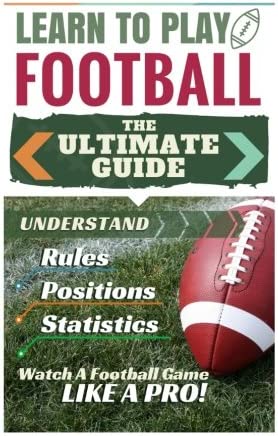
A concussion is a head injury caused from a head impact. This is the most common match injury in rugby league. These injuries can have numerous effects on both sides, including cognitive function. There are steps you can take to reduce your risk. We have provided a few tips to help protect you from head injuries.
Concussions in rugby are the most common form of match injury.
A concussion can be defined as a brain injury that causes dizziness and confusion. Although concussions' exact causes are not known, increased brain health risks have been linked with head impacts. While some head impacts may cause a concussion (some do), others are not. A Drake Foundation-funded study revealed that professional rugby players experienced significant brain and blood vessel changes, which suggests a higher risk of concussion.
In 2010, the number of concussions rose dramatically. The number of concussions per 1000 hours of play increased by nearly two per every 25 matches to 22.2 in the 2010-11 season. This was almost 3.5 times more than the previous season. World Rugby was quick to respond to the increase in concussions and recommended that the minimum rest period for elite athletes who have suffered a concussion be increased from 7 to 12 days.

They result from head impacts
Head injuries in rugby can be caused by head impacts due to rugby tackles. These impacts are not absorbed immediately and cause a shock to the brain. This causes confusion, memory impairment, dizziness, or even loss of consciousness. This injury is a growing concern for rugby players.
Head injuries are a common occurrence in rugby. But they aren't the only danger. CTE is possible in rugby players. This must be checked two to five days per year.
They have a different effect on women than they have on men
While rugby is a sport that men and women alike enjoy, head injuries to women are often more severe than in men. Also, women are less likely receive medical attention for a head injuries. This research demonstrates the differences between the sport and gender. Head injuries in women often result from collisions with other players' knees or the ground. The findings are particularly concerning for women who are involved in competitive rugby.
Swansea University in Wales employed mouthguards equipped with sensors to measure head speed. The objective was to determine the mechanisms that lead to head injuries in rugby.

They can have a negative impact on cognitive function
Recent studies have examined whether head injuries suffered by rugby players have an effect on their cognitive function. The BRAIN Study, a prospective cohort of former English male elite rugby union football players, looked at the associations between concussions and cognitive function. The BRAIN-Q tool was used to record exposure to concussion, and the primary outcome measure was the Preclinical Alzheimer Cognitive Composite (PACC). After adjusting for possible confounders, the researchers discovered a link between concussion scores and PACC scores.
Researchers at Imperial College London carried out the study. It included 44 elite rugby players and was published in the journal Brain Communications. They focused on brain tissue changes and specifically white matter. White matter is what makes up the brain's wiring. These changes could have a long-term impact on the brain's connections. More research is needed to determine if head injuries in rugby can affect a player’s cognitive function.
FAQ
Is extreme sport dangerous?
Extreme sports are dangerous because they put people at risk for injury and death. There have been numerous deaths from other causes like drownings, car accidents, electrocution, and drowning.
Even when you do something quite safe, such as riding a bike or rollerblading - injuries can still occur.
Extreme sports are dangerous because of the possibility of injury.
For example, the National Football League prohibits its players from participating in certain extreme sports (like skateboarding) because of the high risks associated with those sports.
Try extreme sports if you are interested.
How is an extreme sport different from other sports?
An extreme sport involves physical exertion and/or skill combined with a challenge.
This may include the use of equipment like helmets, goggles or other unique clothing.
Extreme sports are not like traditional sports that require training. They test your ability to perform under stress.
They are often outdoors and do not offer any protection in case of emergency.
Some extreme sports may be illegal while others are legal. It all depends on where and what type activities you're involved.
You need to verify the local laws if you plan on doing extreme sports.
Are extreme sports expensive?
Yes. Extreme sports equipment can run into the thousands. However, these people don't need a lot of money.
What skills will I need to do extreme sports?
It is essential to practice every day in order to be proficient in any extreme sport.
Practice includes learning new moves and tricks. This will help improve your performance.
Before you can try something new, it is essential that you are familiar with basic safety guidelines.
For example, helmets should always be worn. You must keep in the sight of others.
You should never attempt to do stunts alone. During your stunt, a spotter will be there to watch over you.
Statistics
- Boxing— 90% of boxers suffer brain damage over their careers, and this is not surprising in the least, considering that they are throwing punches at each other's heads. (rosenfeldinjurylawyers.com)
- Overall participation has grown by more than 60% since 1998 - from 5.9 million in 1998 to 9.6 million in 2004 Artificial Wall Climbing. (momsteam.com)
- Since 1998, overall participation has grown nearly 25% - from 5.2 million in 1998 to 6.5 million in 2004. (momsteam.com)
- According to the United States Parachuting Association, about 21 people die yearly from skydiving. (livehealthy.chron.com)
- Nearly 98% of all "frequent" roller hockey participants (those who play 25+ days/year) are male. (momsteam.com)
External Links
How To
How do I learn how to skateboard?
Skating is a sport where you use your feet to move on ice or snow. Skating can be done alone or with friends. It requires good coordination and balance. First, learn how you can stand on the platform. Then practice balancing while moving forward and backward. Finally, try jumping off ramps or stairs. Once you learn these skills, you will be able skate faster and further than you ever thought possible.
These tips will help you get started if you want to learn how to skate.
-
It is important to determine the type of skates that you are looking for. There are many kinds of skates to choose from, including inline skates (roller blades), speed skates (speed skates), figure skates, and others. The type of skill you have will determine which skates you should purchase. If you're new to skating, the best options are inline skates, speed skates, and roller blades. Figure skaters will prefer boots that provide support during performance.
-
Buy proper equipment. The gear you choose will depend on whether or not you are participating in competitions. Skates that are well-made, durable, and fit well for competition are the best.
-
Try new techniques. You can improve any skill with practice. So don't wait until you master a trick to try it out. Instead, you can practice basic moves like walking backwards or sliding sideways or spinning. This will make it easier to master difficult maneuvers later.
-
Keep learning. Don't expect instant mastery. The best skaters spend many years honing their craft. They never stop improving. Also, remember that there are many ways to improve your technique. You can take lessons at your local rink or join a recreational league. You can also watch videos online and attend workshops.
-
Be patient. Do not worry if you are still having difficulty mastering a complicated maneuver. Just keep practicing. You will eventually be able to do more advanced stunts.
-
Have fun! Skating, which doesn't require special equipment or any training, is a great sport for beginners. It's also a lot fun!